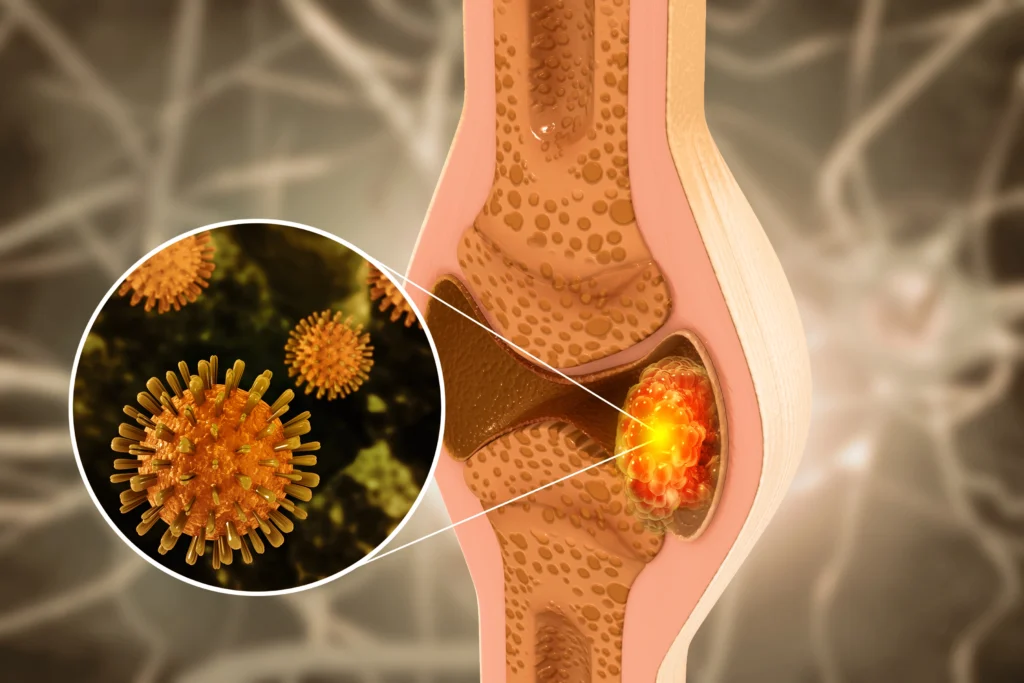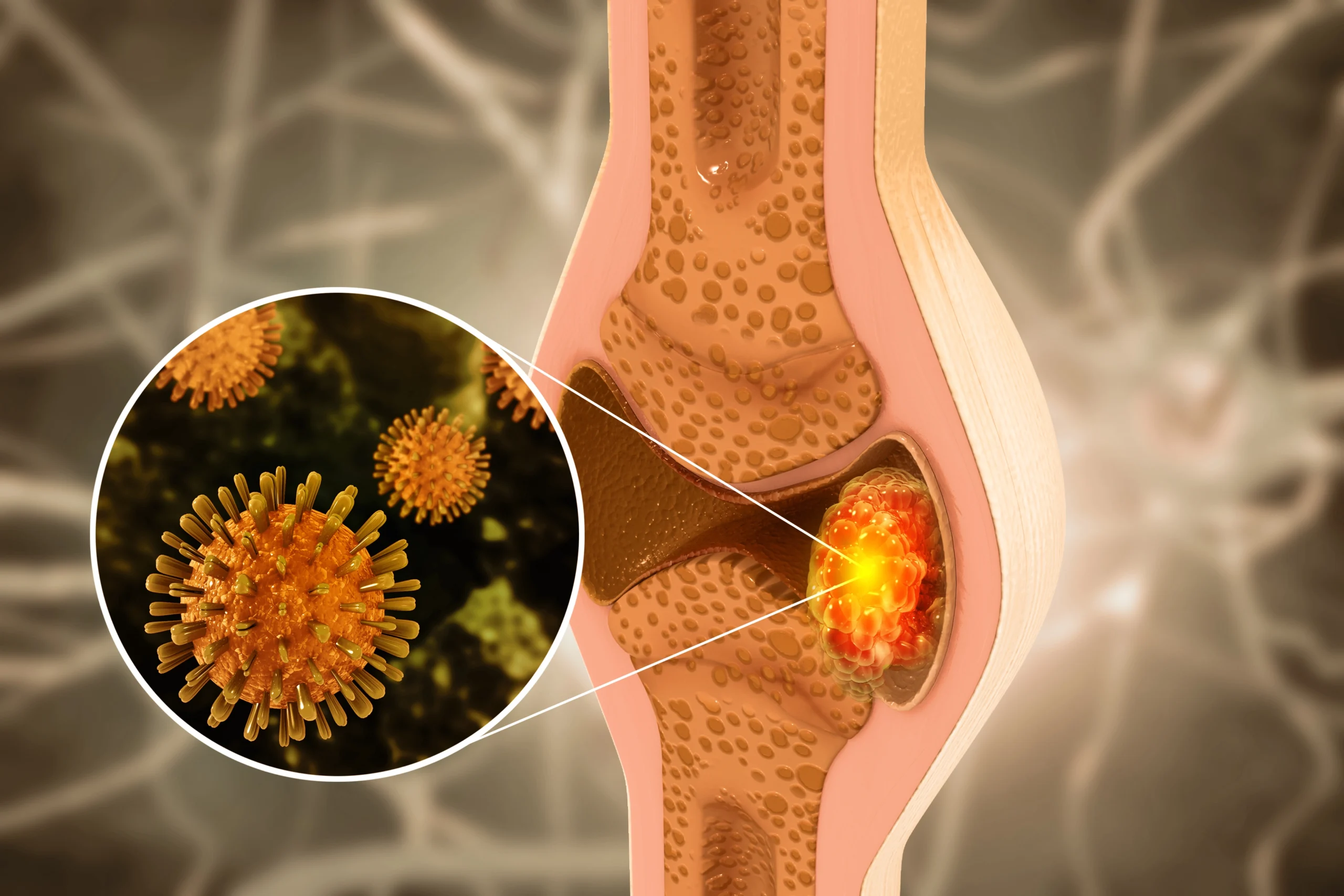Giant Cell Tumor Overview
Giant cell tumor (GCT) of bone is a benign but locally aggressive tumor that typically affects the ends of long bones, such as the femur and tibia, near the knee joint. Although benign, it can cause significant bone destruction and can occasionally metastasize to the lungs. At Fight Bone Tumors, Dr. Kishore B Reddy and our expert team provide specialized care for patients with giant cell tumors, offering advanced diagnostic techniques and personalized treatment plans to manage this condition effectively.
Symptoms:
The symptoms of a giant cell tumor can vary depending on its location and size, but common signs include:
- Pain: Persistent pain near the affected joint, often worsening with activity.
- Swelling or Lump: Noticeable in the affected area.
- Limited Range of Motion: Especially if the tumor is near a joint.
- Pathological Fractures: Bones weakened by the tumor may break easily.
- Joint Effusion: Fluid accumulation in the joint adjacent to the tumor.
Early detection and treatment are essential to prevent complications and improve outcomes.
Diagnosis:
Diagnosing a giant cell tumor involves several tests to confirm the presence of the tumor and determine its characteristics:
- Physical Examination: Initial assessment to evaluate symptoms and overall health.
- Imaging Tests: X-rays, MRI, and CT scans to visualize the tumor, assess its size, and determine its location.
- Biopsy: A sample of the tumor tissue is taken and examined under a microscope to confirm the diagnosis.
Accurate diagnosis is crucial for developing an effective treatment plan.

Treatment Options:
Treatment for giant cell tumor aims to remove the tumor, preserve function, and prevent recurrence. Our approach includes:
Surgery:
- Curettage: Scraping out the tumor from the bone. This is often followed by filling the cavity with bone graft or bone cement.
- Wide Excision: Removing the tumor along with a margin of healthy tissue. This is sometimes necessary for more aggressive tumors.
- Bone Grafting: Using bone from another part of the body or a donor to fill the defect left after tumor removal.
- Joint Replacement: In cases where the tumor has caused significant joint damage.
Radiation Therapy:
- Used when surgery is not possible or as an adjunct to surgery in cases where complete removal is difficult.
Medications:
- Denosumab: A monoclonal antibody that helps shrink the tumor and is often used in cases where surgery is not immediately feasible or to reduce tumor size before surgery.
Our multidisciplinary team collaborates to develop personalized treatment plans aimed at achieving the best possible outcomes for our patients.
Support and Rehabilitation:
Dealing with a giant cell tumor involves more than just medical treatment. We offer comprehensive support services to help patients and their families through this journey:
Physical Therapy:
- Essential for recovery post-surgery, aiding in regaining strength and mobility.
Emotional Support:
- Counseling and support groups to address the emotional and psychological impacts of living with a giant cell tumor.
Nutritional Guidance:
- Tailored dietary plans to support overall health and recovery during and after treatment.
Follow-Up Care:
- Regular check-ups to monitor for recurrence and manage any long-term side effects of treatment.
FAQ's
A giant cell tumor (GCT) of bone is a benign but locally aggressive tumor that typically affects the ends of long bones, such as the femur and tibia, near the knee joint.
Common symptoms include persistent pain, swelling or a lump, limited range of motion, pathological fractures, and joint effusion.
Diagnosis typically involves a physical examination, imaging tests (X-rays, MRI, CT scans), and a biopsy to confirm the diagnosis.
Treatment options may include surgery (curettage, wide excision, bone grafting, joint replacement), radiation therapy, and medications like denosumab.
Curettage is a surgical procedure where the tumor is scraped out from the bone. This is often followed by filling the cavity with bone graft or bone cement.
Yes, potential side effects can include pain, swelling, risk of infection, and challenges related to rehabilitation post-surgery. Specific treatments may have their own unique side effects.
Managing side effects can involve rest, physical therapy, proper nutrition, pain management medications, and emotional support through counseling or support groups.
We offer physical therapy, emotional support, nutritional guidance, and regular follow-up care to monitor for recurrence and manage long-term side effects.
With early detection and appropriate treatment, many patients can achieve long-term remission. The prognosis depends on the tumor’s size, location, and the effectiveness of the treatment.
You can schedule a consultation by calling us at +91 9032027279 or emailing info@fightbonetumors.com. Our team is here to provide personalized care and support.





